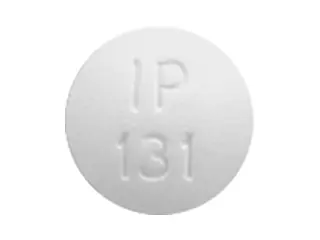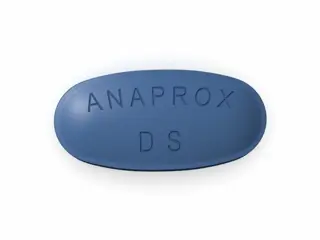Arthritis
Find effective arthritis relief with our range of trusted medications and supplements designed to reduce pain, improve joint mobility, and support your active lifestyle. Shop now for fast-acting solutions and expert-recommended treatments.
Arthritis is a common condition that causes joint pain and inflammation. It affects millions of people worldwide. Many medications are available to help manage symptoms and improve quality of life. These medications act in different ways. Some reduce inflammation, while others relieve pain or slow disease progression. Here, we review some of the popular arthritis medications offered by online pharmacies.
Allopurinol is often used to treat gout, a type of arthritis caused by excess uric acid. It lowers uric acid levels in the blood. This helps prevent gout attacks and joint damage. Patients taking allopurinol may experience rash or digestive upset. Regular blood tests are recommended to monitor kidney and liver function during treatment.
Anaprox is a brand of naproxen, a nonsteroidal anti-inflammatory drug (NSAID). It reduces pain, swelling, and fever. Anaprox is commonly used for osteoarthritis and rheumatoid arthritis. It provides effective relief but can cause gastrointestinal discomfort. Taking it with food can help reduce stomach problems.
Arcoxia (etoricoxib) is a selective COX-2 inhibitor. It aims to reduce pain and inflammation with fewer stomach side effects than traditional NSAIDs. Arcoxia is used for osteoarthritis, rheumatoid arthritis, and gout. However, it may increase cardiovascular risks, so it should be used cautiously in patients with heart disease.
Colchicine is another medication used primarily for gout. It helps reduce inflammation during acute gout attacks. Colchicine works by inhibiting specific white blood cells involved in the inflammatory process. Side effects include diarrhea and nausea. Dose adjustments may be necessary for patients with kidney problems.
Feldene (piroxicam) is an NSAID used to treat various types of arthritis. It has a long half-life, allowing once-daily dosing. Feldene reduces pain and inflammation effectively. However, it carries risks of gastrointestinal bleeding and ulcers. Patients should avoid alcohol and use the lowest effective dose for the shortest time possible.
Indocin (indomethacin) is a potent NSAID. It is often prescribed for rheumatoid arthritis and gout. Indocin relieves pain and swelling rapidly. Due to its potency, it can cause side effects like headache, dizziness, and stomach issues. Monitoring by a healthcare provider is important during treatment.
Mobic (meloxicam) is a popular NSAID for arthritis. It selectively inhibits COX-2 to reduce inflammation and pain. Mobic is used in osteoarthritis and rheumatoid arthritis. It tends to have fewer gastrointestinal side effects than older NSAIDs. Still, caution is advised in patients with heart or kidney conditions.
Motrin (ibuprofen) is a widely used over-the-counter NSAID. It provides relief from mild to moderate arthritis pain and inflammation. Motrin is effective for short-term use but can cause stomach upset and increase bleeding risk. Patients should follow the recommended dosage carefully to avoid complications.
Naprosyn (another form of naproxen) is similar to Anaprox. It treats pain and inflammation related to arthritis. It is favored for its long-lasting effect, allowing twice-daily dosing. Naprosyn may cause gastrointestinal issues and should be taken with caution in patients at risk of ulcers or bleeding.
Neoral (cyclosporine) is an immunosuppressant used in severe autoimmune arthritis cases, such as rheumatoid arthritis. It reduces immune system activity to prevent joint damage. Neoral requires close monitoring due to potential kidney toxicity and increased infection risk. It’s usually reserved for patients who do not respond to standard treatments.
Zyloprim is a brand name for allopurinol, which we discussed earlier. It helps control gout by lowering uric acid levels. Consistent use helps prevent painful flare-ups and joint damage. Patients must be aware of signs of allergic reactions or serious skin rash, and report them promptly.
Selecting the right arthritis medication depends on the type of arthritis, severity of symptoms, and individual health factors. NSAIDs like Anaprox, Feldene, and Mobic are often first-line treatments for pain and inflammation. For gout, allopurinol, colchicine, and their brand equivalents like Zyloprim are commonly used. More potent drugs like Indocin and Neoral are reserved for severe cases.
Patients should always consult healthcare professionals before starting or changing any arthritis medication. Proper diagnosis and monitoring are essential. Medications can have side effects, and their risks and benefits must be balanced carefully.
In summary, arthritis treatment involves various medications with different modes of action. Pain relief, inflammation reduction, and disease control are key goals. Medications like Allopurinol and Zyloprim address uric acid levels in gout. NSAIDs such as Anaprox, Naprosyn, Mobic, and Motrin effectively reduce inflammation and pain. Drugs like Colchicine provide targeted anti-inflammatory effects during acute attacks. Immunosuppressants such as Neoral are for advanced autoimmune arthritis cases.
It is important to use medications correctly and report any side effects to a healthcare provider. Combining medication with lifestyle changes, such as exercise and a healthy diet, enhances treatment outcomes. Keeping in touch with medical professionals ensures safe and effective arthritis management.











